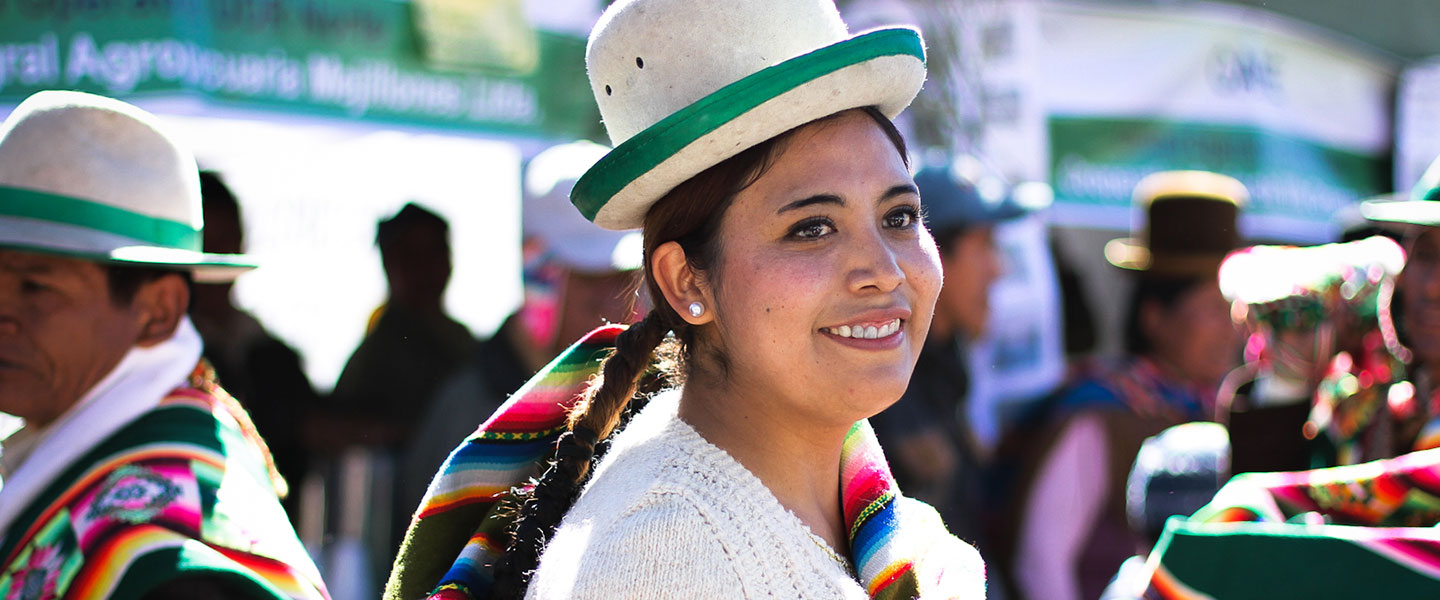The Innovation for Resilient Food Systems (Rural Alliances – PAR III) Project will benefit at least 1,000 rural community associations seeking to reduce vulnerability to food insecurity through small-scale investments in infrastructure and services and nutrition enhancement by inserting technology in agricultural activities and training to manage it. Additionally, some 1,270 rural producer organizations will form productive alliances to facilitate their participation in value chains with commercial partners and access to technical assistance providers to achieve improved, more equitable access to markets, technologies, and organizational skills. PAR III will also implement some 290 complementary productive infrastructure subprojects. The financing will contribute to the adoption of climate-smart agricultural practices in the country, fostering greater women participation.
The Urban Resilience Project supports the cities of La Paz and Santa Cruz de la Sierra in reducing vulnerabilities to climate risks and improving the living conditions of more than 167,000 residents of the lower-income areas in these municipalities. The project contemplates the construction of infrastructure resistant to hydrometeorological phenomena such as landslides and floods, including improved drainage channels and river channeling works. Likewise, work will be done to improve neighborhoods and public spaces and to promote sustainable urban mobility.
To increase connectivity and access to services, the Santa Cruz Road Corridor Connection Project, San Ignacio de Velasco – San José de Chiquitos section, of 208 Km., will complete a highway of the fundamental road network that connects Bolivia and Brazil, closes the Chiquitanía tourist circuit and is part of the East-West Bioceanic Corridor.
The Road Sector Capacity Development Project will contribute to road infrastructure while strengthening capacities for its sustainability. It supports the rehabilitation and maintenance of the 546-Km. Santa Cruz–Trinidad road, which will benefit some three million inhabitants of Santa Cruz and Beni departments, as well as users from other regions, most of whom are farmers who need to transport their produce to other markets. Moreover, it supports the institutional strengthening of the Bolivian Roads Administration (ABC) to develop its capacities to plan, prioritize and implement infrastructure investments in a holistic manner with a new contracting approach for the country that includes the periodic and routine rehabilitation and maintenance of roads in a single operation.
The Improving Sustainable Access to Electricity Project - IDTR III will support more than 141,000 people to have new or improved access to electric power for domestic and productive use through grid extension, construction of mini-grids and installation of individual solar energy (photovoltaic) systems. These technological solutions will benefit homes but also public institutions such as schools and healthcare centers, among others, as well as small-scale production units in the agricultural, trade and industrial sectors. The project has planned the installation of 25,500 household connections to electric grids, 300 connections in production units, more than 9,000 individual household solar power systems, 350 solar power systems in public institutions and nearly 1,100 household connections through mini-grids or hybrid systems powered by renewable energy. The project includes the strengthening of the national electricity sector by reinforcing the electricity distribution area. It will also support public policies for a fair energy transition, which will help reduce pollution.
The Resilient Water Management for Household and Community Irrigation Project will support the improvement of water resource management in 15 basins and 256 municipalities throughout the country. Thus, some 30,000 rural families, mainly engaged in subsistence agriculture in the upper areas of the basins, will enhance their capacity to address the impacts of climate change and their productivity through the improved use of irrigation water. The project supports the country's strategic planning in the sector, promotes governance and institution-building in water management at the subnational and municipal levels, and provides investment guidance. These investments will focus on: protection of water sources to increase supply through reforestation, recovery of native grasslands, soil improvement and protection of water recharge zones in an area covering approximately 16,000 km2; optimization of household and community irrigation systems, including automated irrigation, to improve crop productivity, diversify production and improve household income; and implementation of flood- and erosion-resilient infrastructure (soil degradation).
The Road Sector Climate Resilience Program aims to enhance climate risk management in the road sector and improve the climate resilience and safety of bridges and road sections. The Program will benefit over 165,000 residents in the municipalities of Chimoré and Ivirgarzama in Cochabamba, Guanay in La Paz, and Monteagudo in Chuquisaca, as well as pedestrians and drivers of approximately 9,000 vehicles that use these roads and bridges daily. The project comprises two main components: institutional development in climate risk management within the road sector, and the implementation of three subprojects focused on disaster climate resilience. Additionally, it includes works and activities at the municipal level, with at least half of the investments allocated to priorities defined by the women of the communities. This approach promotes their economic empowerment, social inclusion, and the prevention of gender-based violence.
Last Updated: Oct 16, 2024

